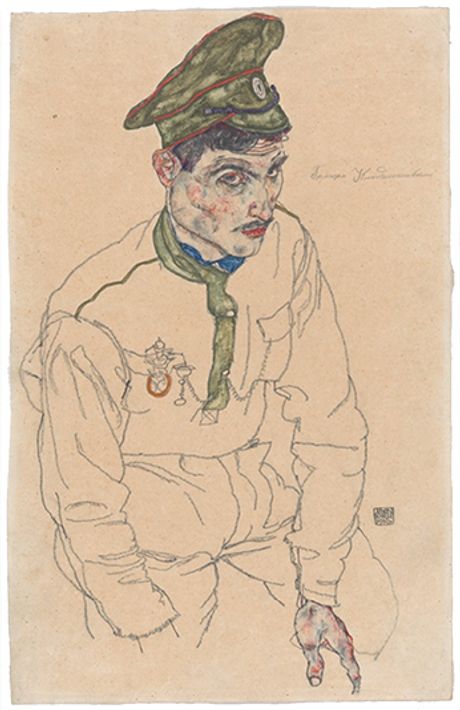
Amid legal battle over who rightly owns Egon Schiele’s 1916 work on paper russian prisoner of warThe Art Institute of Chicago (AIC), which acquired the painting in 1966, dismissed on February 28 a civil lawsuit brought by Jewish-Austrian collector Fritz Grünbaum Brought by an heir, his artwork was confiscated by the Nazis. And he was sent to a concentration camp and executed. Another battle looms, with the New York City District Attorney’s Office also trying to remove the piece and return it to those heirs, with oral arguments expected before the New York Supreme Court in late April or early May.
The civil lawsuit was heard in federal court, where Judge John G. Koeltl ruled that the statute of limitations for the heirs’ claims had expired and that the museum did not purchase the work with malicious intent, knowing it had been looted. AIC spokesperson Megan Michienzi said after the ruling, “We have always acted in good faith. If we owned this work illegally, we would return it, but as the latest federal court ruling makes clear, that is not the case.”
Raymond Dowd, an attorney for Grunbaum’s heirs, disputed Michienzi’s interpretation of the ruling, claiming that “possession in good faith does not equate to good title. Under New York law, the painting remains Stolen property.” He claimed Judge Coltel did not comment on whether russian prisoner of war was the spoils of war, adding: “Our case was dismissed due to timeliness.”
A criminal case is pending. The Manhattan District Attorney’s Office took possession of the piece last summer, but it remains at the AIC, pending whether it should be returned to Grünbaum’s heirs, Timothy Reiff, David Frankel and Milos Wavra’s ruling.
On February 22, Matthew Bogdanos, senior trial attorney and chief of the Antiquities Trafficking Unit of the New York County District Attorney’s Office, filed a 160-page petition with the New York State Supreme Court claiming that Grunbaum’s art collection, in particular more than 80 works by Schiele, “was systematically stolen and then sold after Grunbaum was imprisoned in the Dachau concentration camp for Jewish crimes.”
The museum is expected to respond to the allegations on April 23.

